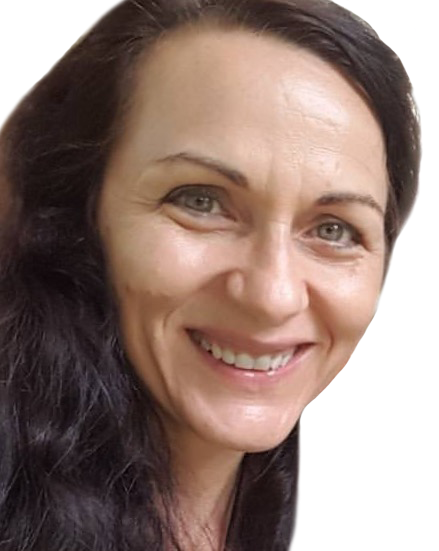Brain-based Assessment in
Mental Health:
QEEG & Event Related Potentials Training Program
Proudly brought to you by
 & & 
in collaboration with world renowned neuroscientist
Prof. Juri Kropotov
About this course
This course is an important event in Australia as it gives opportunity to health practitioners to learn about the advanced methods of EEG Brain Diagnostics (EBD) in a comprehensive step by step program tailored for busy health professionals. The journey will take you from standard EEG through quantitative EEG (QEEG) to the pinnacle of electroencephalography: Event Related Potentials.
Quantitative EEG (QEEG) and Event Related, potentials (ERPs) are valuable tools for supporting the diagnosis and targeted therapy of mental disorders. These methods help to identify EEG biomarkers indicative of brain dysfunction and may inform personalized treatment of brain-based disorders.
Practitioners who will benefit from this training: neurologists, psychiatrists, child and adolescent psychiatrists, psychologists, psychotherapists, general practitioners, pediatricians, occupational therapists, neurofeedback therapists, and other registered health professionals.
Make a more precise assessment and treat your patients more effectively!
Based on feedback from previous participants we are offering a more developmental approach to learning EEG and ERPs in 4 steps. See program details below or download a course Brochure
Mind, Science & My Health (MSMH) has developed flexible training options toward completion of Quantitative Electroencephalography (QEEG) Didactic Training which is required for those seek preparation toward QEEG Certification through IQCB* .
*The International QEEG Certification Board (IQCB) was established to certify the competence of individuals in obtaining and interpreting a Quantitative Electroencephalograph (QEEG). In addition to a minimum of 10 hours of mentoring and passing the IQCB examination in QEEG, candidates must complete a 36-hour QEEG Didactic Training course.
Brain, Mind and Memory Institute (BMMI) is a private foundation established to promote application of advanced methods EEG Brain Diagnostics in Medicine and Allied Health field. Since 2010 we have been involved in training and supporting health professionals and researchers in using EEG based methods to investigate brain function and cognition in clinical settings.We provide turn key solutions for EEG brain Diagnostics based clinics including ongoing support and reporting service.
About the course presenters
 Professor Juri Kropotov is a world-renowned neuroscientist and a leading expert in the basic and applied neuroscience. The unique methodology developed in his labs at the Human Brain Institute in St Petersburg (Russia) allows a sophisticated analysis of brain electric activity in resting states and under task conditions. The methodology is described in his book Kropotov, J.D. (2009). Quantitative EEG, event-related potentials and neurotherapy. London: Academic Press. These precise measurements of brain function can be used as Neuromarkers in the clinical context to evaluate brain health in different psychiatric and neurological disorders. The experience of translating this methodology into clinical practice is presented in his recently published book Kropotov, J. D. (2016). Functional neuromarkers for psychiatry: Applications for diagnosis and treatment. San Diego, CA, US: Elsevier Academic Press. Juri’s workshops are totally unique: the workshop will give you theoretical and practical experience of how to measure and analyse QEEG and ERPs using Human Brain Index Database with most advanced software tools available. Learning to use Neuromarkers is essential for psychiatrists, neurologists, psychologists, forensic and criminology experts, brain researchers and anyone involved in brain training and neuromodulation. Read more about Prof. Juri Kropotov Professor Juri Kropotov is a world-renowned neuroscientist and a leading expert in the basic and applied neuroscience. The unique methodology developed in his labs at the Human Brain Institute in St Petersburg (Russia) allows a sophisticated analysis of brain electric activity in resting states and under task conditions. The methodology is described in his book Kropotov, J.D. (2009). Quantitative EEG, event-related potentials and neurotherapy. London: Academic Press. These precise measurements of brain function can be used as Neuromarkers in the clinical context to evaluate brain health in different psychiatric and neurological disorders. The experience of translating this methodology into clinical practice is presented in his recently published book Kropotov, J. D. (2016). Functional neuromarkers for psychiatry: Applications for diagnosis and treatment. San Diego, CA, US: Elsevier Academic Press. Juri’s workshops are totally unique: the workshop will give you theoretical and practical experience of how to measure and analyse QEEG and ERPs using Human Brain Index Database with most advanced software tools available. Learning to use Neuromarkers is essential for psychiatrists, neurologists, psychologists, forensic and criminology experts, brain researchers and anyone involved in brain training and neuromodulation. Read more about Prof. Juri Kropotov
 Michelle Aniftos is a Clinical Psychologist, Certified in Neurofeedback (BCIA) and a Diplomat of the QEEG Board International (IQCB). She is the founder, Director and Senior Clinician of Mylne Street Mental Health in Toowoomba, Queensland, where she serves a diverse clientele of children and adults with mental health concerns. Michelle is accredited by the Australian Health Practitioner Regulation Agency as a Supervisor of Provisional, Registered and Clinical Psychologists and is an approved mentor for Neurofeedback and QEEG certification candidates. Michelle is past Convener of the Australian Neurofeedback & Psychology Interest Group; current President and Fellow of the Applied Neuroscience Society of Australasia; and Chair of the Biofeedback Certification International Alliance - Australia. Michelle Aniftos is a Clinical Psychologist, Certified in Neurofeedback (BCIA) and a Diplomat of the QEEG Board International (IQCB). She is the founder, Director and Senior Clinician of Mylne Street Mental Health in Toowoomba, Queensland, where she serves a diverse clientele of children and adults with mental health concerns. Michelle is accredited by the Australian Health Practitioner Regulation Agency as a Supervisor of Provisional, Registered and Clinical Psychologists and is an approved mentor for Neurofeedback and QEEG certification candidates. Michelle is past Convener of the Australian Neurofeedback & Psychology Interest Group; current President and Fellow of the Applied Neuroscience Society of Australasia; and Chair of the Biofeedback Certification International Alliance - Australia.
Introduction to Event-Related Potentials in Clinical Practice: ERPs Webinar Series
featuring Professor Juri Kropotov
An event-related potential (ERP) is an electrical response of the brain to a specific event. It is measured by the same amplifiers as a conventional multi-channel EEG but adds measurements during task performance: presentation of stimuli (visual, auditory) and response to stimuli (pressing a button, verbal response…). In the 1-hour ERP webinars, Professor Kropotov will review the methods for ERP recording, the approaches of extracting latent components, discuss advantages and disadvantages of different ERP databases, and describe cases of different psychiatric conditions.
First webinar is FREE:
- Introduction to Event-Related Potentials: 5:30 pm Brisbane AEST, Tuesday 12th November
Followed by 6 x 1-hour live webinars:
- ERPs and ADHD, 5.30pm BNE AEST, Tuesday 19th November
- ERPs and ASD, 5.30pm BNE AEST, Tuesday 26th November
- ERPs and Schizophrenia, 5.30pm BNE AEST, Tuesday 3rd December
- ERPs and Obsessive-Compulsive Disorder, 5.30pm Brisbane AEST, Tuesday 10th December
- ERPs and Alzheimer’s Disease, 5.30pm Brisbane AEST, Tuesday 17th December
- ERPs and Peak Performance, 5.30pm Brisbane AEST, Tuesday 7th January
STEP II. Develop Clinical Understanding
QEEG and/or ERPs Analysis, Reporting and Consultation Service
QEEG and/or ERP recording available at BMMI (Tweed Heads, NSW) or MSMH (Toowoomba, QLD)
Other clinic locations to be announced - providers will be Certified in QEEG & ERP recording.
At this stage, you may choose to access a QEEG and/or ERPs Analysis Service. Either collect the QEEG & ERP data independently and send the data for analysis and recommendations or send your clients to one of our trained service providers for their QEEG/ERP study to be completed. You may then choose a live consultation with Professor Juri Kropotov to discuss the findings or choose to receive a written report or access both the written report and live consult with Juri.
1. Send your client for QEEG/ERP study at one of the above clinics. Fee: $600 AUD
(If you can collect QEEG & ERP data, you can send this directly for analysis services.)
2. Data Analysis and Recommendations provided by written report. Fee: $350 AUD
3. Data Analysis and Recommendations provided by live consultation with Yuri Kropotov if preferred as an alternative to [2] above. Fee: $350 AUD
4. Written Report & Live Consultation - combines options 2 & 3 above. Fee: $600 AUD
STEP III. Develop QEEG and ERP Assessment Capacity
MSMH QEEG Didactic Certificate Course
Following completion of this course (and access to technology required to conduct assessments), you will be able to record QEEG data to send for analysis or complete your own analyses under supervision.
QEEG Diplomate, Michelle Aniftos, offers you a QEEG course that requires seven core modules to be completed by distance education (including webinar tutorial sessions) and followed by a 2-day or 3-day practicum to complete an IQCB-accredited 36-hour QEEG Didactic Course. The following modules include self-guided reading, assessment items and online webinars and tutorial sessions with the QEEGD Mentor:
1. Ethics & Professional Conduct (2hrs self-guided plus 1hr tutorial)
2. Basic Neurophysiology & Neuroanatomy (4hrs self-guided plus 1hr tutorial)
3. Clinical and Cognitive Aspects (6hrs self-guided plus 2 x 1hr tutorials)
4. Editing raw EEG and artifacts (2hrs self-guided plus 1hr tutorial)
5. Montages, Spectral and Topographic Aspects of the EEG (3hrs self-guided plus 1hr tutorial)
6. Drug Effects (2hrs self-guided plus 1hr tutorial)
7. Database Analysis (4hrs self-guided plus 1hr tutorial)
The above package of distance education modules will be offered as a 12-week online course between 27th January and 17th April 2020. A maximum of 12 places will be available. Pre-reading materials will be available to registered participants from the 18th November (closing date for registrations). In order to attain the MSMH QEEG Didactic Course Certificate, participants must also complete a QEEG practicum to cover modules:
8. Practicum, recording EEG & ERPs, artifacting, montages & displaying the data (6 hours)
9. QEEG Analysis & Neurofeedback Application (6 hours) For more information please download this pdf document:
STEP IV. Develop ERP Analysis and Reporting Competencies
At this stage, you are ready for face-to-face training with Professor Juri Kropotov who will visit Australia in September 2020 to teach his
4-day ERPs Analysis Workshop Location Melbourne CBD , Date 7-10/09/2020
Register now:
STEP V. Ongoing Professional Supervision & Technical Support
a) Having completed an accredited 36-hour QEEG Didactic Course, delegates pursuing IQCB QEEG Certification need to submit 5 case presentations to an approved QEEG-D Mentor, a total of 10 contact hours in mentoring, and successfully complete the Board Examination to attain QEEG Certification.
b) Similarly, to complete ERP Analysis Certificate, you will need to have 10 hours of case supervision for your skills' development.
|
 &
&
 Professor Juri Kropotov
Professor Juri Kropotov